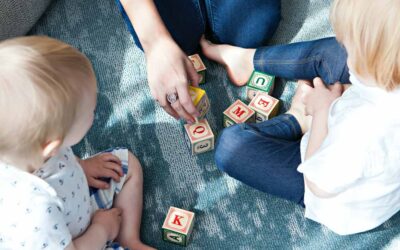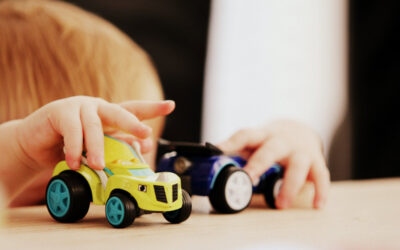UNDERSTANDING THE IMPORTANCE OF SLEEP FOR YOUR CHILD
Everyone needs sleep. Babies, teenagers, and even adults need a minimum of 7-8 hours a day in order to function. While sleep helps you stay awake and go about your day, it is also important for your health. Studies have linked cardiovascular disease, depression, and obesity to insufficient or inadequate sleep.
Sleep is even more important for babies and children. It is crucial for an array of bodily functions. While your child sleeps, his body is secreting hormones to grow; working on the immune system; and retaining, storing, and organizing memories. Most of this occurs when our children are in REM mode (deep sleep) . In order to get to REM sleep, your child needs to go through the stages of “light sleep” (NREM) that happen at the onset of sleep. If your child is only taking a 30-minute nap, he hasn’t fully transitioned to the deep part of sleep, and isn’t fully resting.
Just like they need the night sleep, our children also need the day sleep. Naps are crucial for the child to relax and reset for the day. Skipping naps and keeping a toddler up all day can have negative effects on their attention and behavior. Because our babies are growing a lot those first few years, they need a lot more sleep than adults do. Depending on their age, our children need anywhere between 12-15 hours of total sleep in a 24-hour period. (See chart below of recommended sleep per age by The National Sleep Foundation 2014). And it’s not only about the quantity of sleep, but the quality as well. With children, consistency is key. Babies thrive on scheduled sleep, which means between one and two naps during the day and a long period of uninterrupted, high quality sleep at night.
Here are a few suggestions to encourage healthy sleep habits for your child, so she can grow, learn, and stay healthy:
Create a flexible schedule
Keeping in mind your child’s age and sleep requirements, create a schedule that allows for meals and sleep at the same time each day. Kids thrive on schedules and predictability. Knowing what’s coming up helps the child feel comfortable and transition easier as there’s no uncertainty.
Sleep environment

Make sure to create a healthy sleep environment that is conducive to sleep. A crib or bed in a dark room with no distractions—such as music, lights, or TV’s—and with the right temperature (not too hot or cold). The sleep space should be safe, so use a firm mattress, and depending on the age, a blanket. Make sure the bed or crib is clear of toys and any harmful or distracting objects.
Make naps a priority
Sleep begets sleep. If your child takes a nap during the day, he will most likely wake up less throughout the night and sleep later. Naps are also crucial because they allow the child to take a break in the middle of the day. Naps are needed until about the age of 3-4 years old. A 6-month old baby needs 3 naps a day, while a toddler needs one long nap in the middle of the day. An 18-month old can’t—and shouldn’t—be up for the whole day.
After 5-6 hours of being awake, his body starts producing melatonin and getting tired. If we don’t put him down for a nap, he may have missed the sleep window, and started secreting cortisol instead, which gives him a second wind. But now he is overtired and it will be even more difficult to get him the rest he needs.

Sleep routine for both naps and bedtime
Helping your child transition from playtime to sleep time is important. Try to create a routine that involves slowing down the activity to quieter or calmer play. Perhaps some puzzles, books, or legos. Make sure to turn off all screens 30 minutes – 1 hour before bedtime. Once it’s time to go to sleep, bring your child to his room, close the shades, dim the lights, and read a book. Make sure to put him into the bed awake. It’s an easy routine that can be done by anyone, whether grandma, nanny, or dad!
| Age | Night sleep | # Hours of day sleep | Recommended total hours of sleep* |
| 4 months | 11-12 hours | 3-4 hours | 12-15 hours/day |
| 6 months | 11-12 | 2-4 | 12-15 |
| 9 months | 11-12 | 2-4 | 12-15 |
| 12 months | 11-12 | 1.5-3 | 11-14 |
| 18 months | 11 | 1.5-3 | 11-14 |
| **2 years | 11 | 1.5-3 | 11-14 |
| 4 years | 11-12 | 0-2 | 10-13 |
| 5 years | 11-12 | No nap | 10-13 |





